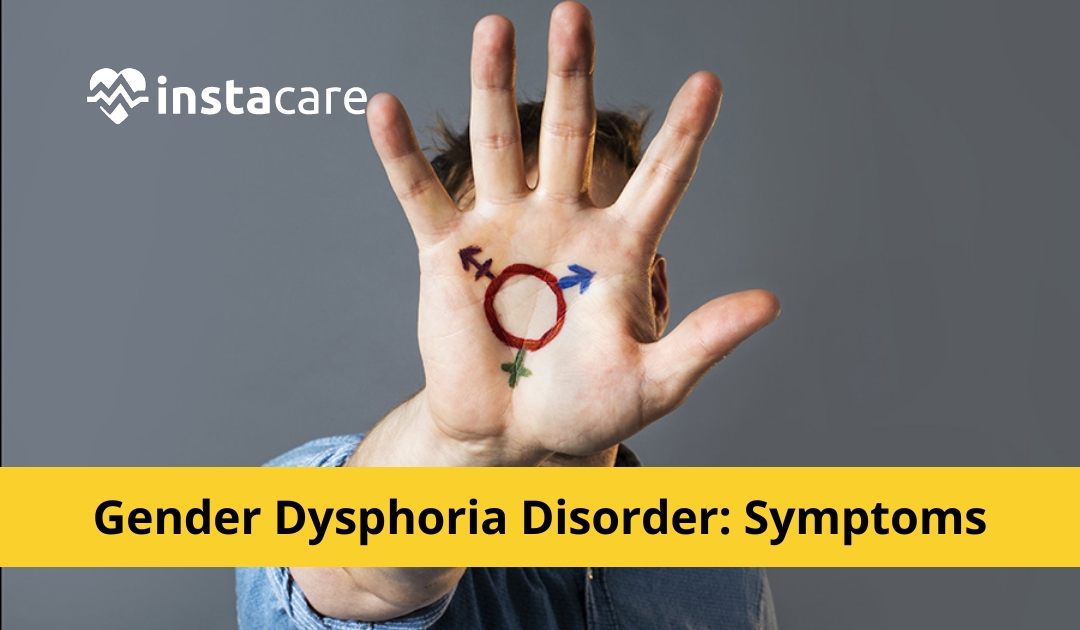The ever-changing dynamics of our world have opened a new layer of investigation when it comes to understanding mental health. Through increased education, research, and awareness campaigns, many are now recognizing the need for acknowledgment and support for people who suffer from gender dysphoria. This condition affects those who experience significant distress over their assigned sex at birth not matching their internal understanding of gender identity or expression. With that in mind, let us explore this complex topic by delving into the intricacies surrounding its symptoms, causes and potential treatments available today.
What is gender dysphoria?
Gender dysphoria is a complex and highly personal experience that affects a growing number of individuals. This condition describes the deep discomfort, uncertainty and distress that people experience when the gender they were assigned at birth does not match their true identity. The symptoms may manifest differently in each individual - some may struggle with anxiety, depression or social isolation, while others may undergo physical changes or transition through therapy or medical interventions. Although the concept is still widely misunderstood and stigmatized, gender dysphoria is a real and legitimate phenomenon that deserves recognition, understanding and support.
Is gender dysphoria a mental illness?
The topic of gender dysphoria and its classification as a mental illness has been a subject of much debate. In the past, it was classified as gender identity disorder, but it is now recognized as a medical condition known as gender dysphoria. While some traditional beliefs remain, modern scientific research has encouraged a more open and positive attitude towards the subject. Those who experience gender dysphoria deserve to be treated with respect and dignity.
Gender dysphoria is not a choice or just a passing phase; it is often a lifelong, distressing condition that can benefit from appropriate care and support. The acceptance of gender dysphoria and support for individuals' understanding of their gender identity can lead to a better quality of life and overall wellbeing for those affected.
When does gender dysphoria develop?
Gender dysphoria is a complex phenomenon that affects many people around the world. It is a condition where one experiences feelings of discomfort or distress because they identify as a gender different from their assigned birth gender. While the exact causes are not fully understood, it is believed that gender dysphoric feelings often develop during early childhood or adolescence. Many individuals with gender dysphoria report feeling as though they were born in the wrong body, and this can lead to significant psychological distress.
It is important that people with gender dysphoria receive adequate support and resources to help them with their unique challenges and improve their quality of life.
View More: Activities That Help You to Get Rid of Mental Stress
What causes gender dysphoria?
Gender incongruence is a condition that has been puzzling scientists and medical professionals for decades. Also known as gender dysphoria, the feeling of being uncomfortable with one's biological sex and gender identity can cause mental anguish, social isolation, and, in severe cases, suicidal ideation. While the exact cause of gender dysphoria remains unknown, research has suggested a complex interplay between biological, psychological, and environmental factors. Some experts hypothesize that prenatal exposure to hormones or genetic factors might play a role in the development of gender dysphoria.
Others argue that social stigma, cultural norms, and family dynamics could contribute to feelings of gender incongruence. Despite the lack of a clear-cut answer, what we do know is that individuals who experience gender dysphoria deserve empathy, support, and access to compassionate healthcare.
Diagnosis of Gender Dysphoria
Diagnosing Gender Dysphoria can be a complex and emotional process, but it is the first step towards accessing gender-affirming care. Gender-affirming care describes the range of treatments and support services that help transgender and gender non-conforming individuals feel comfortable in their own bodies. This includes hormone therapy, counseling, and surgical procedures. Diagnosis of Gender Dysphoria is typically made by a mental health professional who specializes in gender identity.
The process may involve discussions around medical history, gender identity, and the experiences that led to seeking a diagnosis. While the process can be challenging, it can also be incredibly empowering for individuals seeking to live more authentically.
Treatment of Gender Dysphoria
Gender dysphoria is a condition that can cause immense emotional turmoil for those who experience it. Fortunately, there are now several different treatments available that can help alleviate the distress associated with this condition. One of the most well-known and effective treatments for gender dysphoria is hormone therapy, which can help individuals develop the secondary sex characteristics of the gender they identify with. Surgery is also an option for some individuals, particularly for those who have fully transitioned and wish to undergo gender confirmation surgery.
Additionally, therapy and counseling can be helpful for those who are struggling with the psychological aspects of gender dysphoria. All of these treatments work together to help individuals live happier, more comfortable lives.
Conclusion
The journey to understanding and addressing gender dysphoria is a
difficult but necessary one. It’s important for individuals, parents,
educators, medical professionals, and society in general to recognize signs of
dysphoria and respond with sensitivity and empathy. Everyone can help create an
environment that supports those dealing with dysphoria by listening, educating
themselves on the topic, providing resources for support groups and other forms
of assistance, and actively advocating for acceptance and understanding.
Those who struggle from dysphoria are incredibly brave and strong for learning to cope with an often-outdated stigma; their courage should be celebrated every day. Remember: no matter your gender identity or orientation, this is an issue that affects us all it’s time to come together as a community to ensure everyone gets the care they need.


